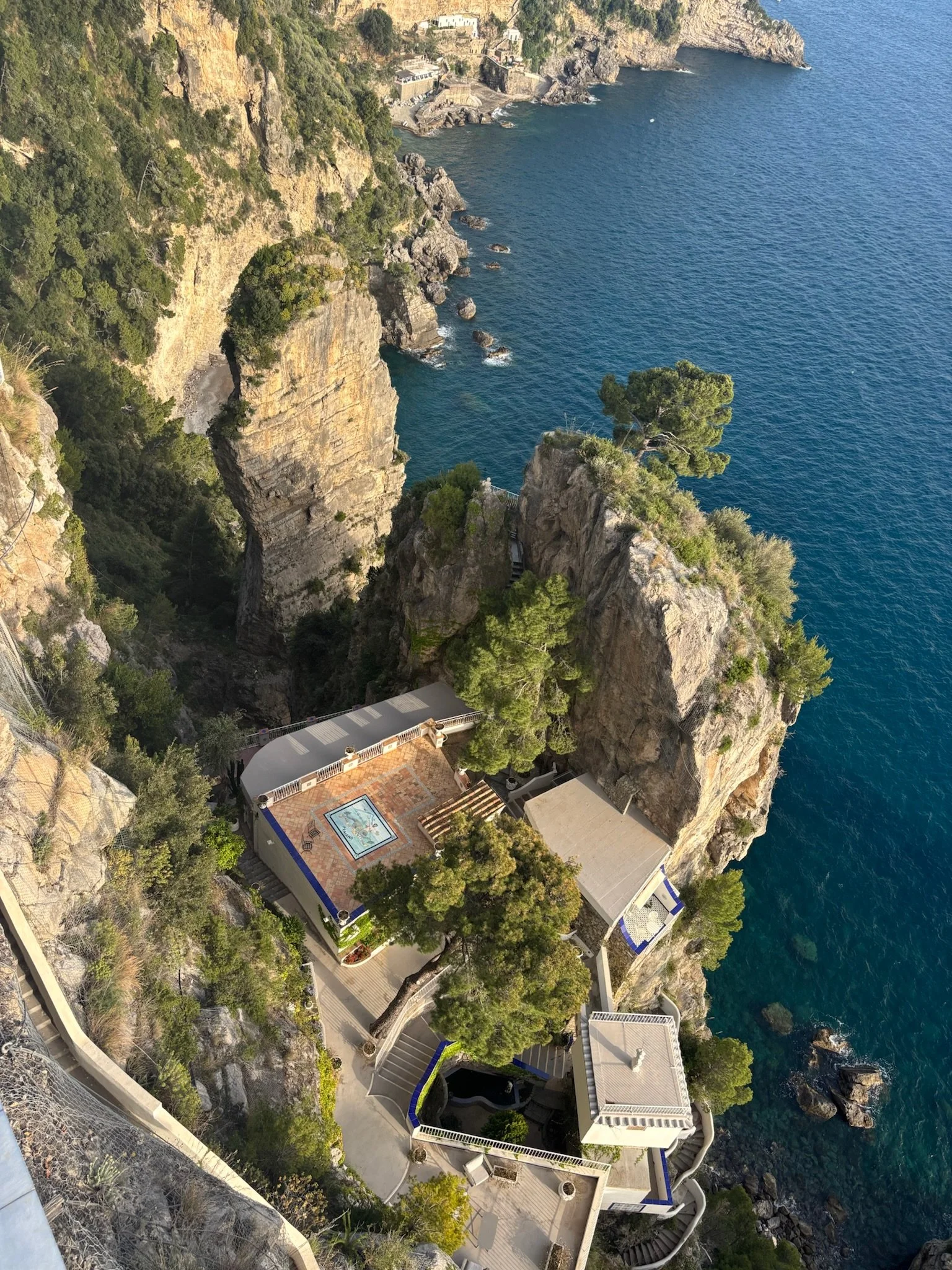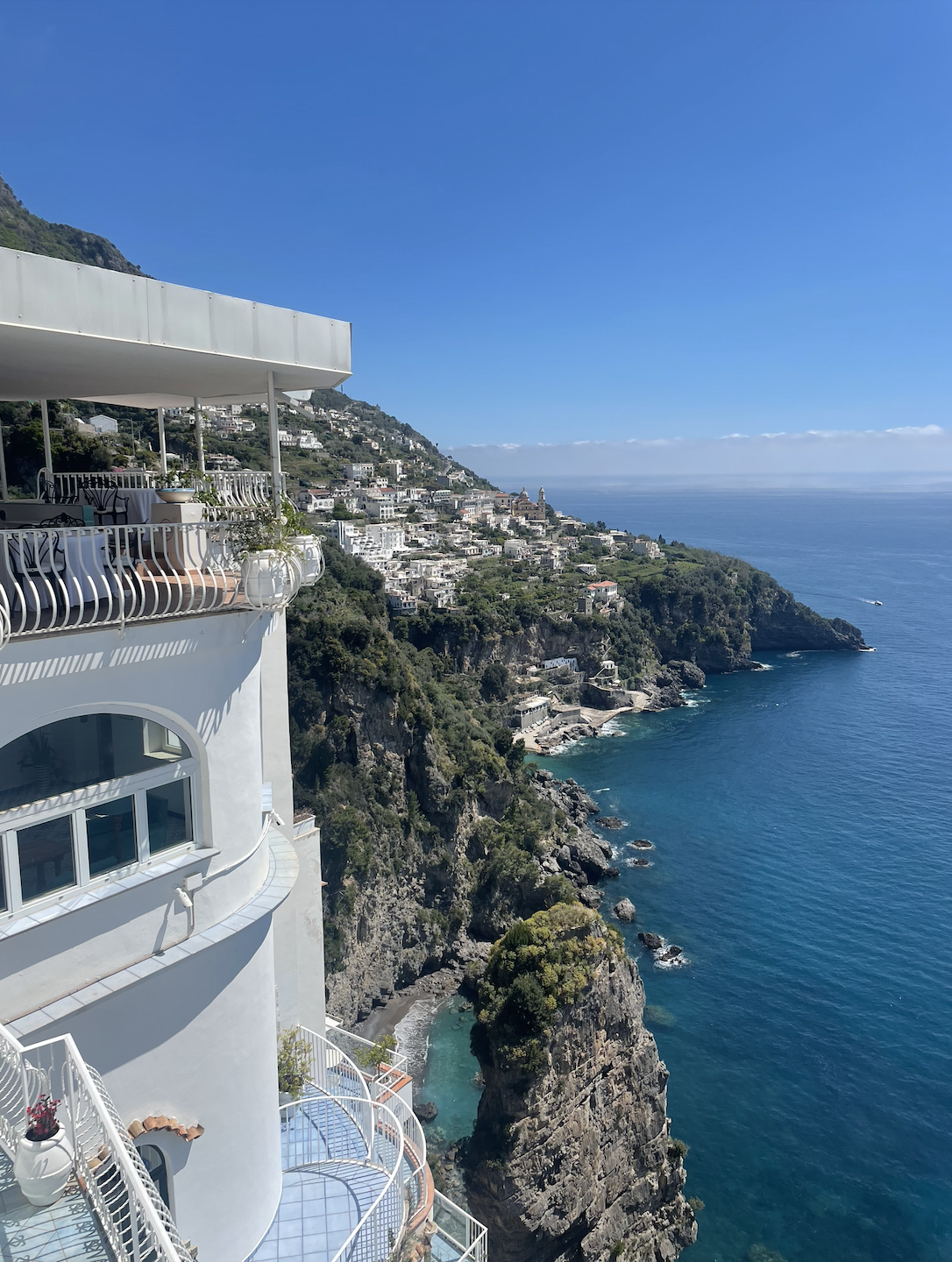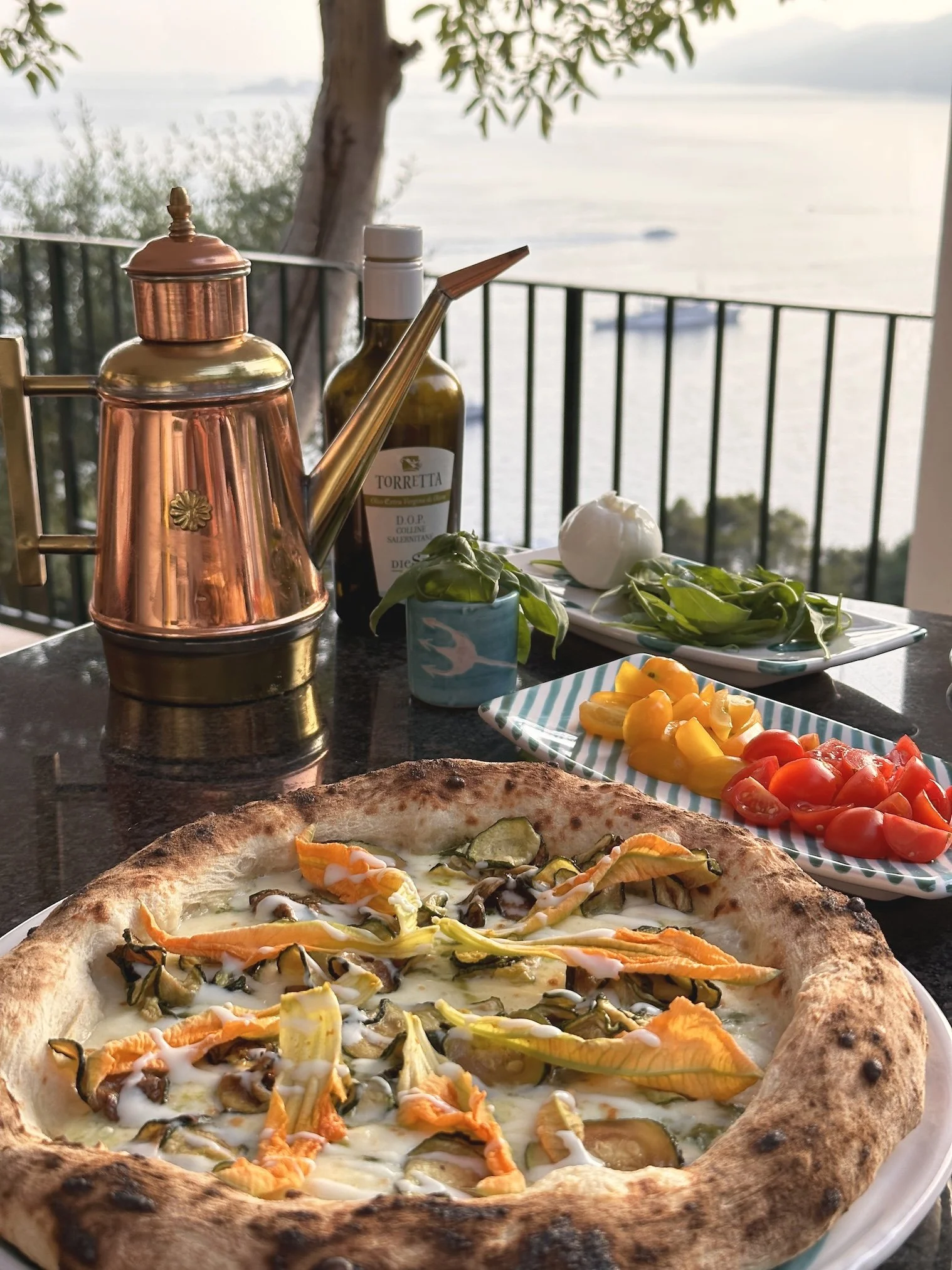Grand Hotel Tritone: Elegance anchored in the cliffs of Praiano
There are few places left along the Mediterranean that capture the spirit of la dolce vita without artifice - where elegance lingers not in opulence, but in a quiet understanding of setting, scale and time. One such place is Grand Hotel Tritone, gracefully poised between the sea and sky in Praiano, that overlooked jewel between Amalfi and Positano. With its gardens tumbling down to a private cove and rooms carved into the living rock of the cliffs, the hotel is less a monument to grandeur than a dialogue between man and the natural world - between permanence and impermanence, tradition and gentle reinvention.
Founded in 1957 by Giuseppe Gagliano, a man of considerable foresight and cultural conviction, the Grand Hotel Tritone was part of a new wave of Italian hospitality that looked forward while remaining deeply rooted in place. At a time when international travellers were returning to Europe with a renewed appetite for authenticity and adventure, Gagliano envisioned a sanctuary that honoured the natural drama of the coastline without succumbing to the heavy-handed aesthetics of the tourist age.
Instead of reshaping the land, the Gagliano family worked with it—building into, not on top of, the cliffside. Terraces were carefully sculpted, ancient pine and olive trees preserved, and interiors furnished with hand-painted Vietri tiles, local ceramics, and antique woods. Over the decades, the hotel passed through generations of the same family, maintaining the rare warmth and continuity of a privately held estate, even as its clientele became increasingly international.
Architecturally, the hotel is a marvel of vertical design, cascading in levels from the Amalfi Drive above down to the waterline below. It is a space that feels neither built nor imposed, but simply discovered—as if Tritone had always existed, hidden in plain sight. The transition from road to reception, from olive grove to beach club, from terrace to terrace, is gentle and sensory. Bougainvillaea climbs over stone walls; rosemary perfumes the corridors; birdsong carries across courtyards where time feels as still as the warm air.
The rooms and suites, each with a balcony or private terrace, offer panoramic vistas of the Gulf of Salerno and the shifting light of the Tyrrhenian. Inside, old-world craftsmanship blends with modern comfort: arched ceilings, frescoes, traditional majolica tiling, and bespoke linens. A handful of the rooms are positioned to face both sunrise and sunset—a rare and romantic orientation along this craggy coastline.
Few hotels on the Amalfi Coast can claim a private beach, and fewer still one as dramatic as Tritone’s. Guests descend through shaded gardens and then via a lift tunnelled through stone to reach a sun-drenched terrace beside the sea—a natural cove where fishermen once tied their boats, now transformed into a serene solarium with sun loungers tucked among coastal rocks.
From here, one can swim in crystalline waters, hire a private boat directly from the dock, or simply take in the cinematic views of Positano’s vertical townscape to the west and the ghostly outlines of Cilento to the south. This lower level also houses a saltwater pool, a beachside café, and shaded pergolas for afternoon aperitivi.
At the heart of the hotel’s experience is La Cala delle Lampare, the Michelin-starred restaurant perched dramatically above the sea. It takes its name from the traditional lampare fishing boats, which cast their glowing lanterns onto the waters at night—a sight guests can still witness from their tables. The atmosphere is almost sacred: warm breeze, candlelight, and the rhythmic hush of waves against stone.
Executive Chef Salvatore Varriale brings a modern sensibility to Campania’s culinary heritage. Menus shift with the seasons and the tides—red mullet served with saffron-infused potatoes, spaghettini with local clams and Amalfi lemon zest, octopus with smoked aubergine. House-made focaccia is paired with regional olive oils, and wine pairings are drawn from a deep cellar that includes rare vintages from Taurasi, Etna, and the islands of Procida and Ischia.
The eight-course ‘Belvedere del Professore’ menu, named in honour of one of the family’s scholarly ancestors, offers a symphonic progression of flavour and technique, concluding with exquisite pastries and aged liqueurs from the coast’s finest distillers.
Service at Grand Hotel Tritone is both personal and intuitive. Many of the staff have served the hotel for decades, and the ethos of hospitality here is one of quiet stewardship rather than performative luxury. Rooms are turned down with fresh flowers; breakfast is served with the same hand-pressed orange juice and just-baked pastries one might expect in a private villa; and the Gagliano family themselves are often seen greeting returning guests or tending to details with familial care.
This is the kind of place where books are left out on tables, where a pianist plays softly in the bar after dinner, and where conversations linger long into the evening under the pergolas. There is no rush, no pretense—only the soft insistence of beauty and the reassurance of continuity.
In a world increasingly shaped by transient experiences, Grand Hotel Tritone remains a rare and grounded exception. It is not the most flamboyant, nor the most photographed—but it is, perhaps, among the most authentically beloved. Those who come once often return, drawn not by fashion but by the sense that they are part of something enduring: a house in the cliffs, a terrace above the sea, a pause in time that somehow never feels still.
For those who seek quiet grandeur, genuine heritage, and the poetic equilibrium of architecture, sea, and spirit—Tritone does not need to announce itself. It simply waits, radiant and rooted, as it has always been.







